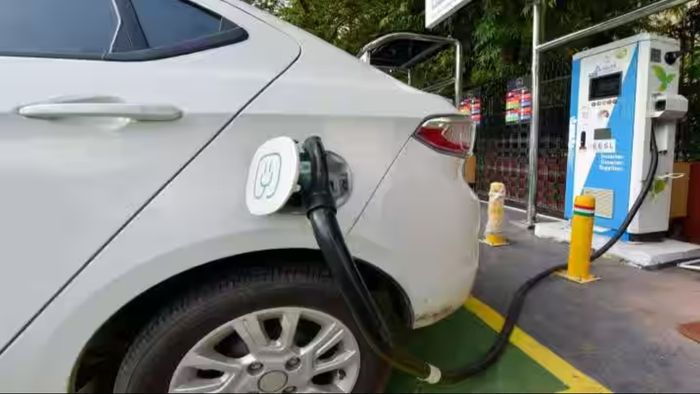Assam government reduces Motor Vehicle tax on electric vehicles by 2 per cent
In a move to promote the adoption of electric vehicles (EVs) and enhance environmental sustainability, the Assam government has implemented a reduction in the Motor Vehicle (MV) tax for electric vehicles.

- Feb 12, 2024,
- Updated Feb 12, 2024, 4:25 PM IST
In a move to promote the adoption of electric vehicles (EVs) and enhance environmental sustainability, the Assam government has implemented a reduction in the Motor Vehicle (MV) tax for electric vehicles.
In the ongoing state budget session, the Assam government has mulled for a green approach for a sustainable future.
Under this:
> 3 crore saplings plantation to be done under Amrit Brikshya Andolan-Project cost Rs 40 crore
> A number of collaborations for enhancing renewable energy
> Introduction of Green buses in Guwahati and 2 per cent reduction in MV tax on registration of electric vehicles
> Energy audit of Government buildings- Project cost: Rs 10 crore
> Mandatory rooftop solar in all new private and public buildings
This initiative is part of a broader Electric Vehicle Policy of Assam, 2021, which aims to increase the number of EVs on the road.
The policy sets an ambitious target of introducing at least 200,000 EVs within the next five years.
To incentivize buyers, the state government has announced a series of subsidies and tax rebates.
For electric two-wheelers, a subsidy of Rs 20,000 is available, while electric three-wheelers can receive a Rs 50,000 subsidy.
Also Read: Assam Finance Minister Ajanta Neog to present state budget for 2024-25 fiscal year today
Additionally, electric four-wheelers are eligible for a substantial subsidy of Rs 1,50,000. These financial incentives are designed to make EVs more accessible and affordable for the public.
Furthermore, the Assam government has decided to offer a 2 per cent rebate on the purchase of electric vehicles until March 31, 2025.
This rebate is a reduction from the existing tax rate on non-transport EVs, providing further financial relief to those who choose to invest in cleaner transportation options.
The revised MV tax structure for EVs reflects the state's commitment to reducing carbon emissions and promoting sustainable transport solutions.
By lowering the cost barrier for potential EV owners, Assam is taking significant steps towards a greener future and setting a precedent for other states to follow in the pursuit of environmental conservation and innovation in the automotive sector.